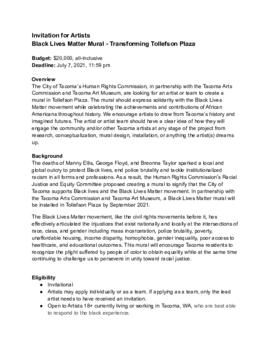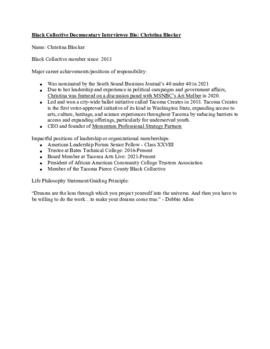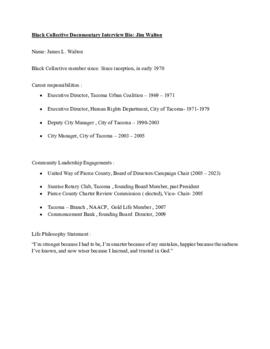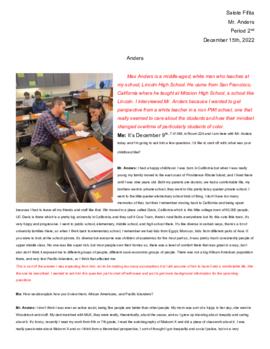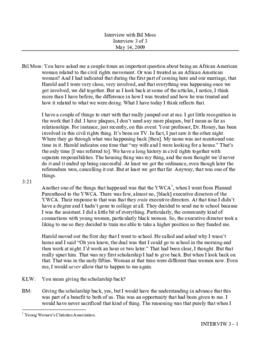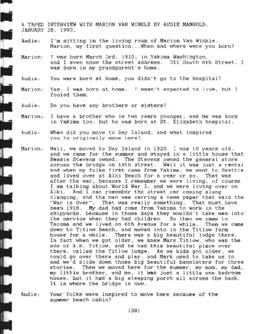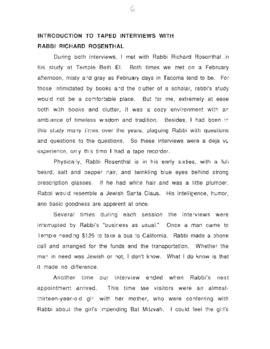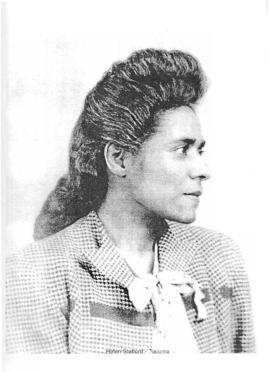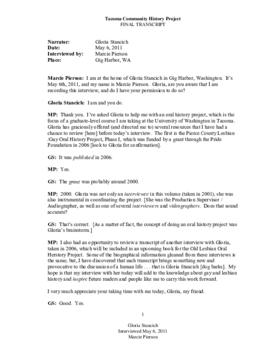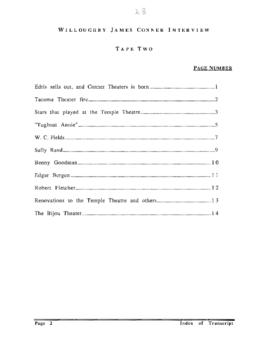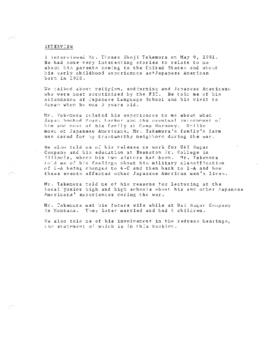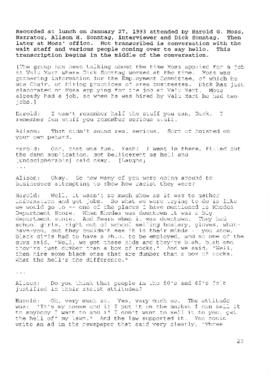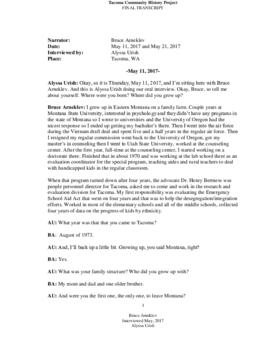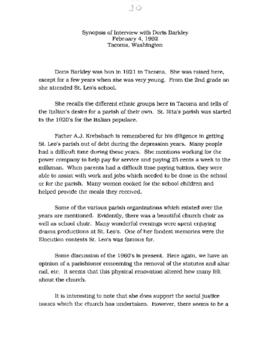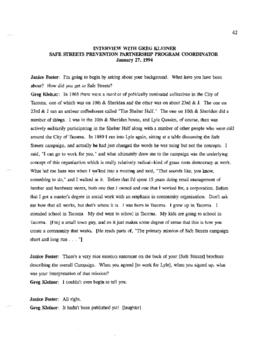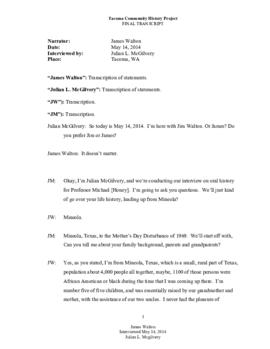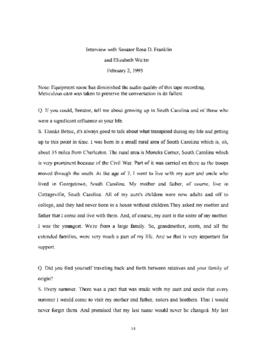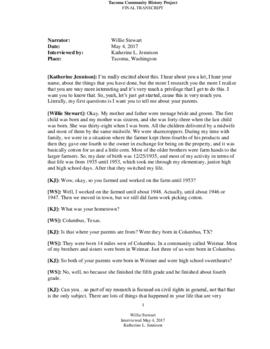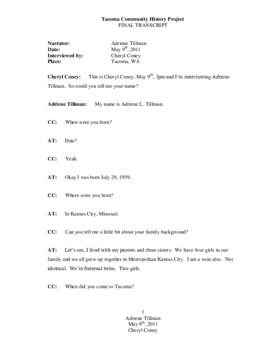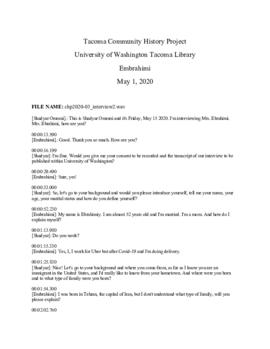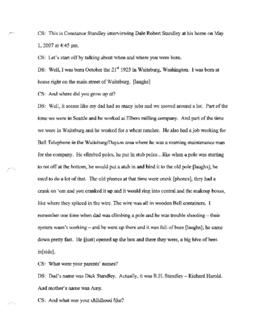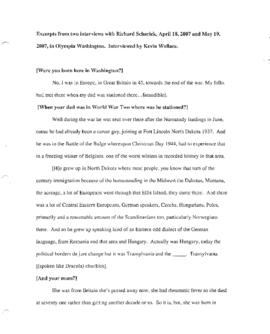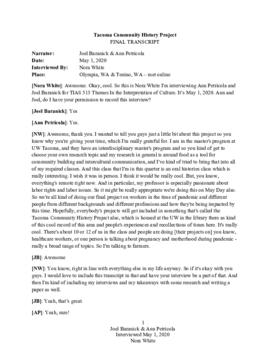Oral history interview with Bruce Arneklev by Alyssa Urish conducted 05/11/2017,05/21/2017. Born in rural, eastern Montana, Bruce Arneklev, 79, can be seen as an unlikely match to have led the Tacoma School District's desegregation program evaluation in the 1970s. Arneklev earned his bachelor's and master's degrees at the University of Oregon and his Educational Doctorate in educational psychology at Utah State University before moving out with his family of five for an evaluation role with the Tacoma School District. Arneklev was hired to evaluate the district's Emergency School Aid Act for its first four years, 1973-1977. ESAA was a federal program that funded school desegregation efforts. Tacoma began voluntarily desegregating its schools in 1966 with a limited school choice enrollment for its segregated central-area schools and expanding to district-wide enrollment policies to reduce effects of de facto segregation over the next three years. Arneklev worked for an additional twelve years in the district's evaluation department before working as a school psychologist for ten years, retiring in 2000. He lives in the North End of Tacoma with his wife, Dixie, dog, Charlie and has several children and grandchildren in the Tacoma area.
